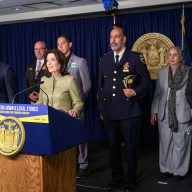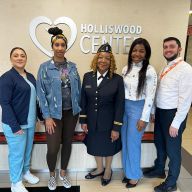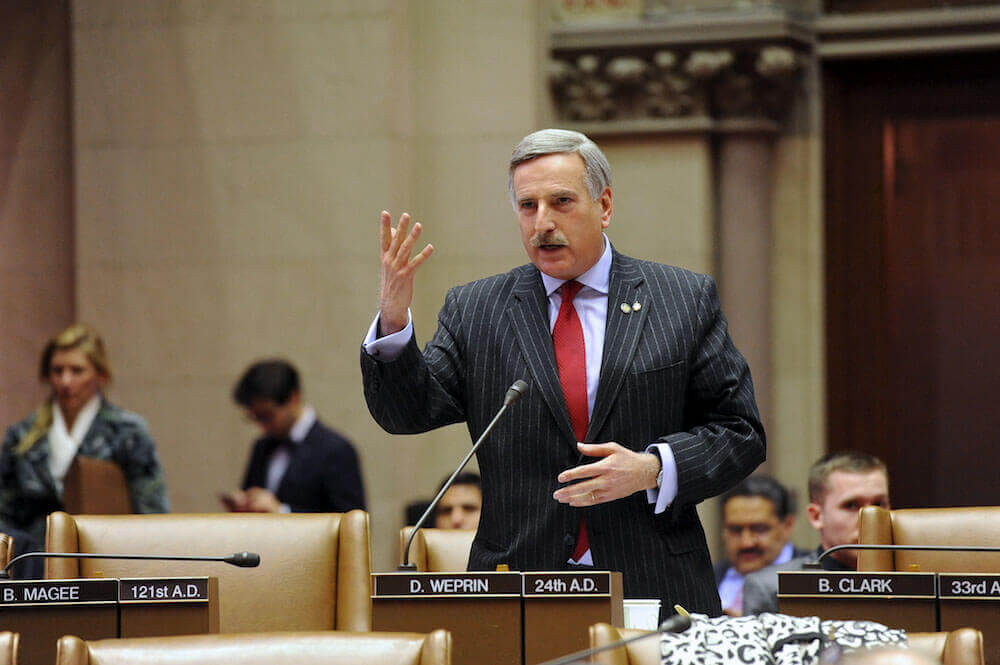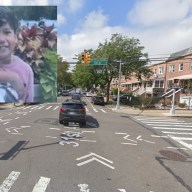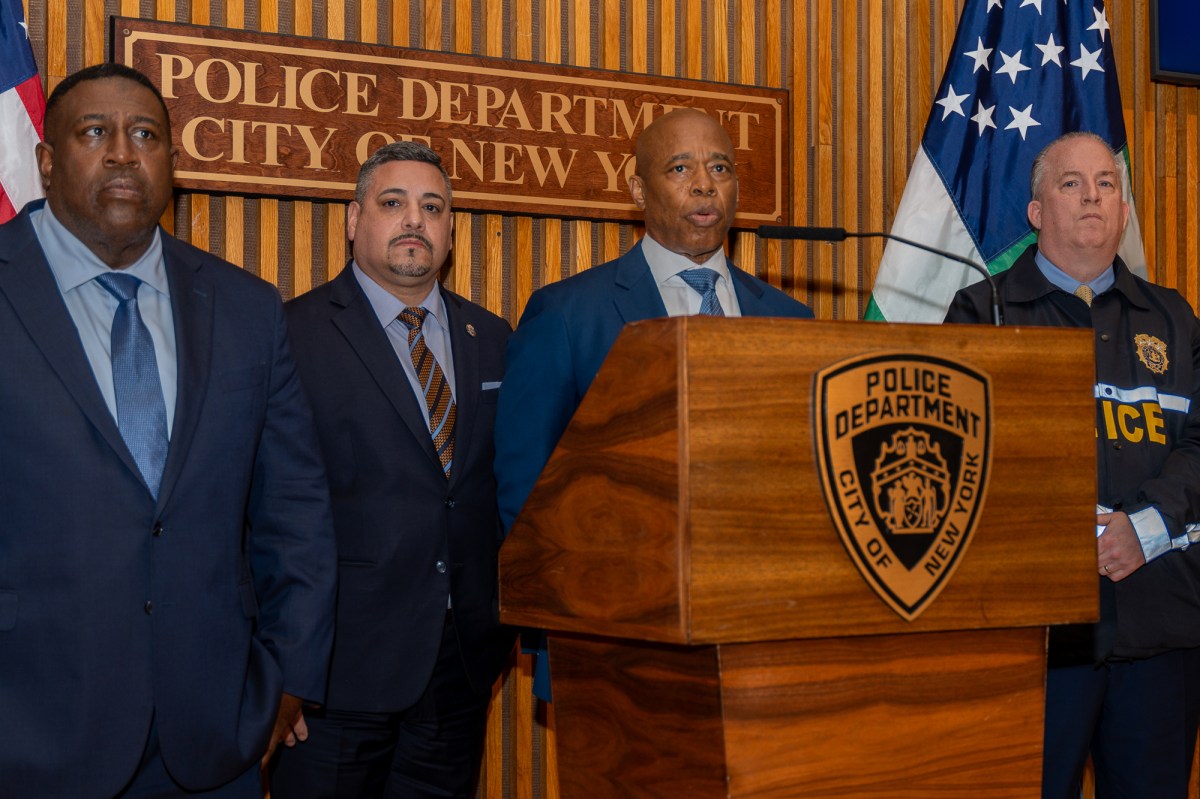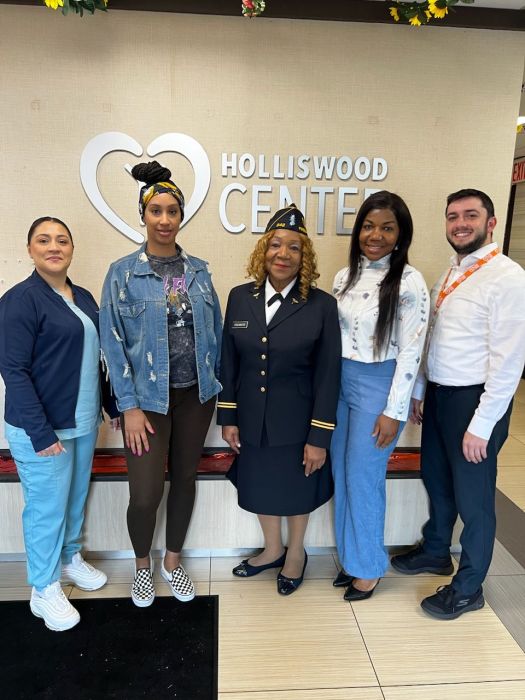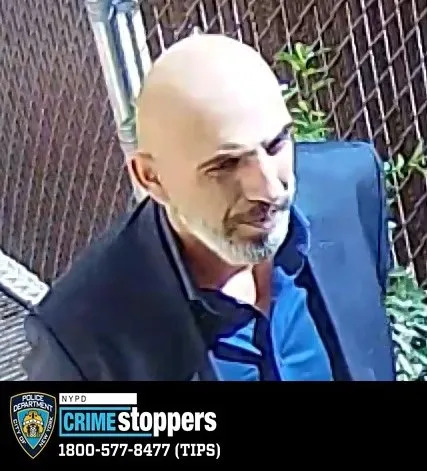By Scott Sieber
About 20 Muslim, Jewish and Christian college students are all sitting in the same room, talking to each other, asking each other questions.The punch line?There is no punch line. It's true.At LaGuardia Community College, such events take place every day, and with more than just three religious groups. The school's surname, “The World's Community College,” was acquired for good reason with an enrollment that stakes a claim to having students from more than 150 nations. Ask students at the school what happens when different races come together, and they will probably respond similarly to Muslim Club President Jehhar Mustabha.”We have groups of different ethnicities from all over the world,” he said. “We're happy to know other people's cultures.”Student Club coordinator Greg Faulkner has worked at LaGuardia for nearly 10 years. After his first few months on the job, he said he stopped being surprised at the genuine interest displayed by students to not only accept classmates from different backgrounds but to get to know them as well. The school clubs are where most of these personal transactions take place.In explaining the acceptance clubs extend to one another, Faulkner said the Straight and Gay Alliance Club participates in frequent basic discussions on belief differences, yet somehow the conversations often retain a higher level of civility and maturity than in the real world.”Even if these students don't agree with what each other have to say, they'll at least show up at each other's events because they feel they need to support what one another is doing,” he said. “It's amazing.”Perhaps the best demonstration of the solidarity between school ethnic groups was found at the Black Student Union's Fifth Annual Black Expo on a recent Friday. The event, held at the college's Main Stage Theatre, showcased BSU rappers, models, poets, comedians and dancers to a packed audience comprised of fellow club members.”We participate in the Hindu Club, the African Club, the Haitian Club, the Straight and Gay Alliance, the Bachata Merengue Club,” said Black Student Union president and event coordinator Stacy Curry. “We try to go around to all the different clubs and show as much love as we can. Everyone here loves each and every culture, and each and every person the same.”Such unity does not mean the loss of identity or individuality, however, as all clubs are bound to experience conflict at some point. But Curry contends the occasional disagreement is necessary to dispel generations of ignorance.She describes not only her club but all 30 of the school's international clubs as “one-big-happy-family and said “we settle our arguments like adults.”Faulkner cites attitudes like Curry's as highly unusual in the world but commonplace among the students at the school. Segregation exists, he said, just not at LaGuardia.”I see what happens here as exercise in diplomacy,” he said. “I can see these students down the road going into municipal government and community boards, meeting up when they encounter a problem, shaking hands and saying, 'We can do this because we've done it before.' There are schools right now investing millions of dollars into what we have occurring naturally right here at Laguardia.” Everyday students in the E Building walk beneath the Hall of Flags, a hallway stretching the length of the building donned with more than 150 flags representing each nation at the school. Most recently, a native American flag was hung in the school.Clubs also set up incentive programs where fee-based events benefit international students who would not otherwise receive the same grant funding available to Queens residents. Funds raised help fund club activities, but many also provide funding to those who could not otherwise afford tuition.Malik Bestman, the president of the African Club who is originally from Liberia, said when he first arrived in America, his English was shaky and he was beginning to feel the brunt of culture shock. In 2003, he joined the African Club and saw new worlds open up. Club members tutored him in English to help him pass, showed the newcomer around campus, and acquainted him with the melting pot culture.”With the club, they show you what you're entitled to, but you don't know,” he explained in well-spoken English. “The club is still helpful to me even today.”Faulkner said the club system slightly mirrors the fraternity/sorority system of larger colleges, at least as far as concepts like brotherhood and sisterhood are concerned. The only problem, he said, is most students enjoy their time in the clubs so much that it's hard for them to leave.”We have to usher them out gently,” he laughed. “When they graduate, they just don't want to leave.”







